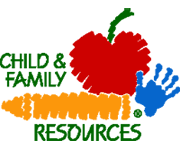The early years of a child’s life are very important for his or her health and development. Parents, health professionals, educators, and others can work together as partners to help children grow up to reach their full potential. Skills such as taking a first step, smiling for the first time, and waving “bye bye” are called developmental milestones.
Children reach milestones in how they play, learn, speak, act, and move (crawling, walking, etc.). Children grow and learn at different rates. Monitoring your child’s development can be confusing even for the most attentive parent. Kids with learning, behavioral or developmental challenges need specialized care to be physically, cognitively, academically, socially and emotionally healthy.
Development Milestones
Your child’s early development is a journey. Learn about developmental milestones and know what to look for along the way. For parents of children from birth to four years.

Ages and Stages Questionnaire-3:
The Ages and Stages Questionnaire-3 (ASQ-3) is a reliable and accurate developmental screening for children ages 1 month to 5 years old. The screening is completed by parents/guardians/caregivers and reviewed and scored by trained professionals. By using parent/guardian/caregiver’s knowledge, the screening has been specifically created to capture a child’s progress and skills, as well as catch if there is a risk for a developmental delay- the screening does not give a diagnosis. The screening focuses on important areas of development including Communication, Gross Motor, Fine Motor, Problem Solving Skills, and Personal-Social. If you are interested in completing a free screening for your child or would like to learn more please contact us at info@CFRMorris.org
Click on the following resources to learn more about your child’s developmental milestones:
CDC Center for Disease Control and Prevention
Developmental Screenings – Early Intervention Services
Children develop at different paces, but there are developmental milestones that children should reach by certain times during the first three years of their lives. When children fail to reach these milestones, parents and other caregivers should consider contacting Early Intervention for an evaluation.
The New Jersey Early Intervention System (NJEIS), under the Division of Family Health Services, provides information and services for infants and toddlers, birth to age three, with developmental delays or disabilities, and their families. For more information, visit their website.
Families of children 3 years old and older can receive referrals for assistance from Project Child Find. Call 800-322-8174 for more information. Services for older children are typically provided through the local school district. (Have the Project Child Find flyer linked to the words.)

Resources for Children Who Have Special Needs
NJ MAP to Inclusive Child Care Team
The MAP Team provides guidance to the NJ Inclusive Child Care Project that offers on-site technical assistance, workshops and presentations at state and national conferences. FIND OUT MORE.
SPAN
Our vision is that all families will have the resources and support they need to ensure that their children become fully participating and contributing members of our communities and society. Our mission is to empower and support families and inform and involve professionals interested in the healthy development and education of children and youth. FIND OUT MORE.
PerformCare
PerformCare is a full-service behavioral health managed care company, supporting members in the public sector. We are committed to providing superior, innovative solutions in behavioral health, developmental and intellectual disabilities, human services, and integrated health programs. FIND OUT MORE.
NJ DOE Special Education Implementation of IDEA
FIND OUT MORE.
How Does My child Learn?
A child’s brain undergoes an amazing period of development from birth to three — developing approximately 80% of the adult brain in this time frame. The development of the brain is influenced by many factors, including a child’s relationships, experiences and environment.
Click on the buttons to the right to learn more about your child’s developing brain and how to best support healthy brain development.
Zero to Three:
Early Connections Last a Lifetime
Vroom (Brain Builder)
Sesame Street In Communities
APA ACT Raising Safe Kids Program
Center on the Social and Emotional Foundations for Early Learning
